• classical/modern singer • guitarist • uni student- medieval studies and history • ancient studies • literature • occultism and theology • medieval demonology • 🇮🇹🇸🇪🇬🇧🇨🇮
Don't wanna be here? Send us removal request.
Text
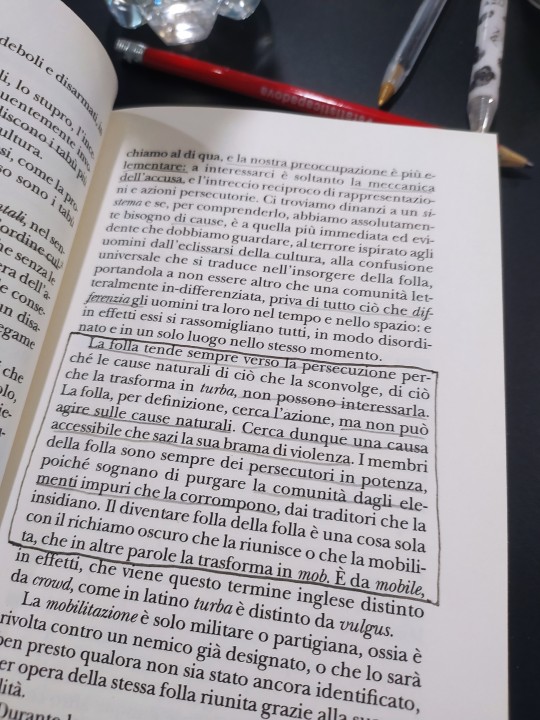
René Girard - Il Capro Espiatorio
#french literature#philosophy#rene girard#philosopher#modern philosophy#contemporary literature#contemporary philosophy#french language#french translation#italian literature#italian#italiano#history#literature#quotes#uni student#histoire#the lovers#protest#protesta#dissension#music#art#ancient literature#ancient history#latin literature#love#passion#university#current mood
4 notes
·
View notes
Text

«Historia Alexandri Magni »
An elegiac poem about Alexander the Great written by Quilichinus from Spoleto
#medieval#middle ages#alexander the great#greek literature#greek history#alexander of macedon#ancient literature#ancient history#literature#latin literature#elegy#christianity#bible scripture#greek gods#history student#roman history#history#italian literature#uni student#ancient languages#ancient civilizations#ancient greece#ancient rome#ancient culture#culture#currently reading#reading#long reads#bookworm#books
5 notes
·
View notes
Text
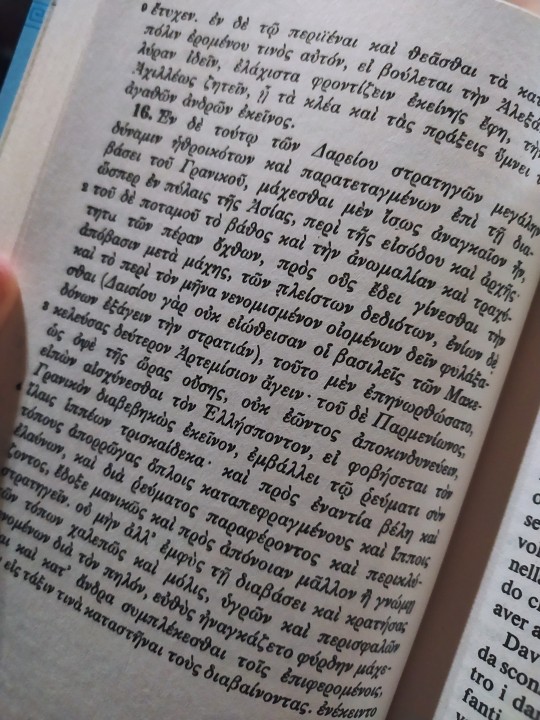
Plutarch- Lives of Alexander the Great and Caesar
#greek tumblr#greek gods#greek literature#greek quotes#greek history#ancient art#ancient languages#ancient rome#ancient greece#ancient civilizations#ancient history#ancient culture#ancient greek mythology#plutarco#ancient literature#literature#quotes#love quotes#latin literature#love#art#calligraphy#university#history student#roman history#histoire#alexander the great#julius caesar#passion#writing
9 notes
·
View notes
Text
Love to see some Petrarca here!
Petrarca's Secretum is basically him saying "forgive me father for i have sinned of depression"
81 notes
·
View notes
Text
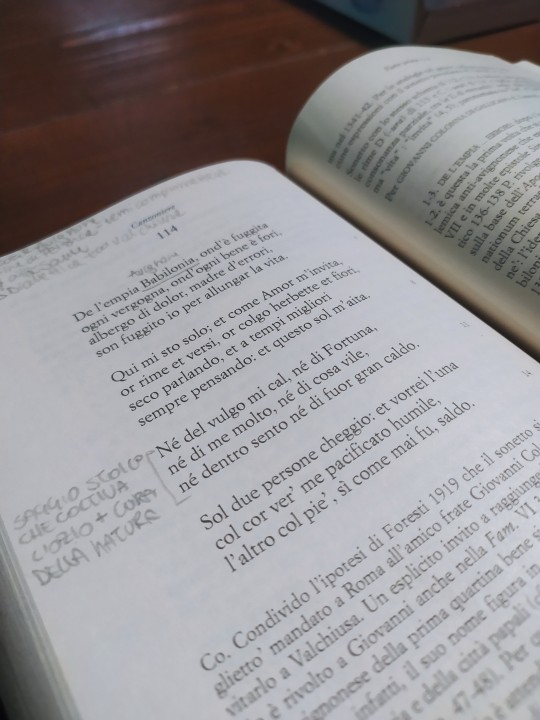
#francesco petrarca#petrarch#italia#italian#italian literature#ancient languages#ancient literature#ancient history#literature#quotes#love quotes#latin literature#art#ancient art#literary quotes#poetry#love poem#love poetry#bible#scripture#revelations#music#love#metal#poem#original poem#prose#books and libraries#rerum#ancient culture
10 notes
·
View notes
Text
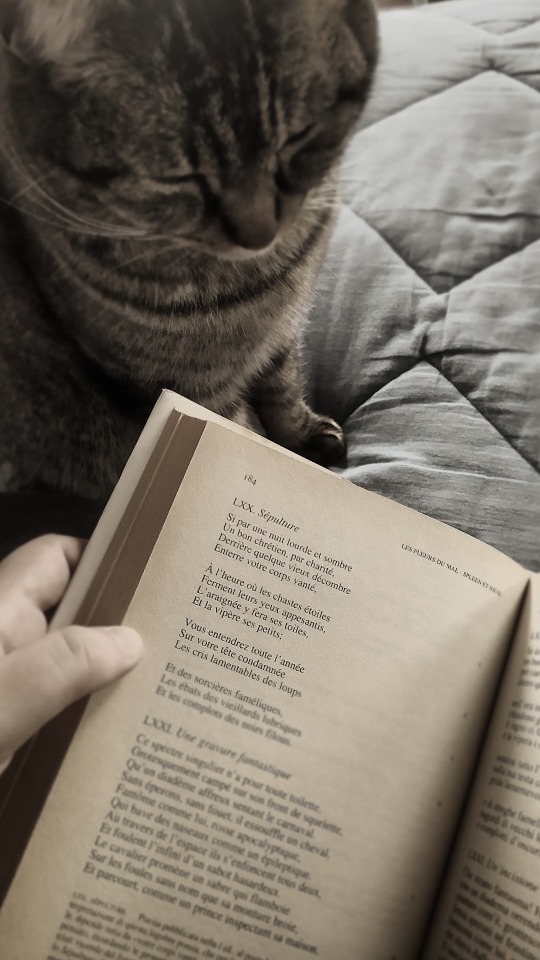
What greater gift than the love of a cat.
#cats#cat#kitty#cats of tumblr#kitten#tabby cat#ancient literature#literature#quotes#love quotes#charles baudelaire#the flowers of evil#meow#french language#french literature#french#decadence#decadentbeauty#love#catsoftheworld#catlover#cat mama#occultism#occult#satanism#satanist#satanic#satan#ars goetia#music
26 notes
·
View notes
Text

«Solamen miseris socios habuisse doloris.»
Translation: «It is a comfort to the wretched to have companions in misery.»
-Goethe (Faust)
#tarotcommunity#tarot tumblr#tarot cards#tarot reading#tarot#tarot spread#tarot commissions#esoterism#esoteric#esoterismo#esoterist#esoterik#witches of tumblr#pagan witch#witchcraft#witch#ars goetia#goetia demon#lucifer#german literature#goethe#faust#classic#ancient literature#contemporary literature#history student#art#quotes#latin literature#ancient history
5 notes
·
View notes
Text
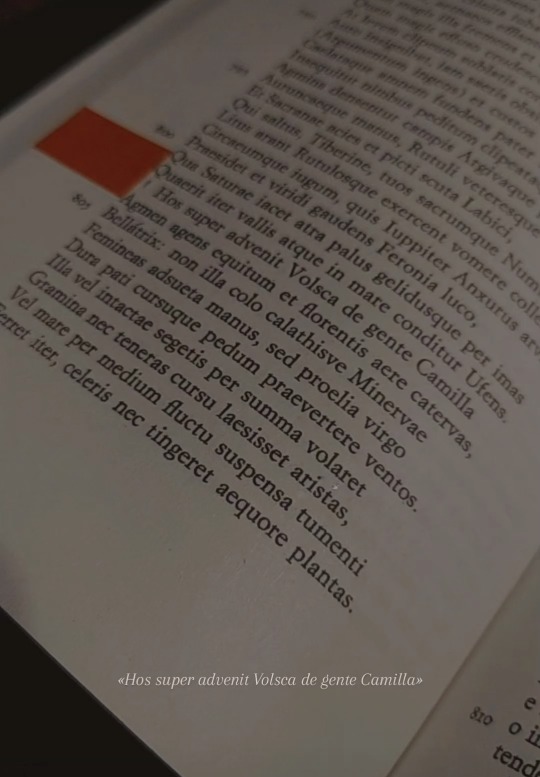
«Hos super advenit Volsca de gente Camilla»
«Afte them all arrived Camilla, of the Volsci people»
Vergil-Aeneid (VII)
Camilla is maybe one of the greatest character in the whole Vergil's masterpiece. She's an Italic warrior and queen of a little Italic tribe named "Volsci" and she can be assimilated with plenty of lost poems about the Troy war talking about the Amazons' queen Pentesileia, daughter of Mars himself. The way they both fight: with both bow and arrows and spears, and with one breast exposed, suggest the obvious inspiration Vergil took from the Greek tales to create his own character. She's the human daughter of the King Metabus and Queen Casmilla -who probably died after giving birth to her- but she's protected and sacred to the huntress goddess Diana (Artemis). She fights along with Turnus against Aeneas but she's bound to a tragic fate of death by the prophecy claiming the birth of Rome, but her death is a matter of tricks since she couldn't be killed in a honest fight due to her unique skill, making her the greatest warrior of the whole poem and the only one claiming a whole book to her.
#ancient history#ancient literature#literature#quotes#latin literature#roman empire#rome#roman reigns#ancient art#ancient languages#ancient rome#mythology and folklore#vergil#the aeneid#explanation#explained#greek tragedy#greek gods#ancient greece#ancient civilizations#literary quotes#university#roman history#history student#histoire#history#universitas#poem#elegy#original poem
6 notes
·
View notes
Text

«Tu regere imperio populos, Romane, memento./ Hae tibi erunt artes, pacisque inponere morem,/ Parcere subiectis et debellare superbos.»
«Remember to rule on people, Roman. This will be your art, to impose a tradition of peace, have mercy of those who submit themselves and annihilate those who don't »
Vergil- Aeneid (VI)
In the sixth chapter of Vergil's Aeneid, Aeneas descends to the Underworld (Catabasis of the Underworld -Catabasis ad Inferos-)and talks to his deceased father Anchises, who predicts the future glory of Aeneas offspring. The protagonist manages to be introduced to the great souls who will reincarnate to lead Rome to its greatness and his Father sets the common known base of Mos Maiorum (the "ancient usage") to have mercy of those ones who bend to the Roman power and annihilate of those who don't. Ironically, Aeneas doesn't respect this law in the first place, when, at the end of the book he fights against his great nemesis Turnus, and he begs for mercy and to have his life spared. He kills him anyways leading to a great moral dilemma Vergil feels intrinsic in the Roman usage.
#art#ancient history#ancient literature#literature#quotes#latin literature#ancient rome#rome#roman empire#vergil#virgilio#the aeneid#mythology and folklore#poetry#elegy#inferno#love#university#history student#roman reigns#roman history#ancient languages#ancient love poetry#ancient civilizations#università#lettere#in love#love quotes#sappho#homer
4 notes
·
View notes
Text

«Far from his loved ones still, he suffers torments.»
- Odyssey, Homer
#statue#greek gods#greek tumblr#greek mythology#greek tragedy#the odyssey#odysseus#homer#the iliad#mythology and folklore#athena#sculpture#art#ancient history#ancient literature#literature#ancient art#goddess#quotes#music#love#history student#greek history#greek literature#love quotes#wisdom#paganism#ancient languages#ancient civilizations#ancient greece
7 notes
·
View notes
Text

«E noi saremo dèi finché durerà la notte»
-V.M. Manfredi- "Alexandros"
#love#music#contemporary literature#ancient history#ancient literature#literature#quotes#love quotes#latin literature#ancient languages#ancient rome#ancient greece#ancient civilizations#odysseus#the odyssey#homer#greek mythology#greek gods#history student#roman empire#roman history#bookstagram#art#metal#italian#italian language#italian literature#bookworm#books & libraries#book review
9 notes
·
View notes
Text

«Ô Satan, prends pitié de ma longue misère!»
Translation: «Oh Satan, have mercy of my long suffering!" -Baudelaire, Le fleurs du Mal-CXX
#love#french literature#french language#french#ancient literature#literature#quotes#love quotes#esoteric#esoterism#satan#bookstagram#books & libraries#charles baudelaire#dark poetry#poetry#dark art#dark academia#music#metal#art#france#ancient history#modern history#modern literature#decadence#litany#history student#literature student#university
39 notes
·
View notes
Text

«For the words of a vow are sacred not only among men and the angels, but among the demons as well.» -Howard Schwartz
#lilith#tarotcommunity#tarot reading#tarot cards#tarot#tarot tumblr#ars goetia#occultism#occult#demonology#demonolatry#the lovers#sigils#magic#king solomon#solomonic magic#major arcana#minor arcana#artwork#quotes#love#bible#dark art#ancient history#ancient literature#literature#art#music#metal#crowley
5 notes
·
View notes
Text
«Odi et amo. Quare id faciam, fortasse requiris.
Nescio, sed fieri sentio et exceucior.»
-Catullus, Carmina (85)
Translation:
"I hate and I love. Maybe you ask me how can I do it. I don't know, yet that's what I feel happening to me and it's my my cross to bear»
#love#art#ancient history#ancient literature#latin literature#literature#love quotes#quotes#ancient rome#catullo#catullus#classic#currently reading#music#classicism#classical antiquity#greek mythology#poetry#poem#love poem#heartbreak#heart ache#feelings#emotions#roman empire#roman history#history#history student#history studyblr#literary quotes
4 notes
·
View notes
Text

Au Lecteur
La sottise, l'erreur, le péché, la lésine,
Occupent nos esprits et travaillent nos corps,
Et nous alimentons nos aimables remords,
Comme les mendiants nourrissent leur vermine.
Nos péchés sont têtus, nos repentirs sont lâches;
Nous nous faisons payer grassement nos aveux,
Et nous rentrons gaiement dans le chemin bourbeux,
Croyant par de vils pleurs laver toutes nos taches.
Sur l'oreiller du mal c'est Satan Trismégiste
Qui berce longuement notre esprit enchanté,
Et le riche métal de notre volonté
Est tout vaporisé par ce savant chimiste.
C'est le Diable qui tient les fils qui nous remuent!
Aux objets répugnants nous trouvons des appas;
Chaque jour vers l'Enfer nous descendons d'un pas,
Sans horreur, à travers des ténèbres qui puent
Translation:
Title: to the reader
Foolishness, mistake, sin, greed/ capture the spirits and haunt the bodies/ and we feed the lovable regret/like beggars feed their insects.
Obstinate the sins, weak the repentances;/ they pay greatly our confessions/ and we head back happy on the trail of mud/ believing that cheap tears was away every guilt.
On the pillow of evil the three times great Satan/ cradles for a long time the enchanted spirit/ and the rich metal of our will/ is turned to dust by that wise chemist.
The Devil holds the strings that move us!/ We discover a fascination in the vile things;/ everyday we take a step down, in the stench of darkness/ to Hell, without feeling horror.
-Baudelaire, Le fleurs du Mal (Au lecteur, 1-16)
#love#art#ancient history#ancient literature#french#french literature#french language#charles baudelaire#dark aesthetic#dark poetry#original poem#poems on tumblr#quotes#the flowers of evil#history student#history#decadence#literature#love quotes#music#university#current mood#currently reading#bookstagram#book review#passion#lust#deadly sins#bible#inferno
4 notes
·
View notes

